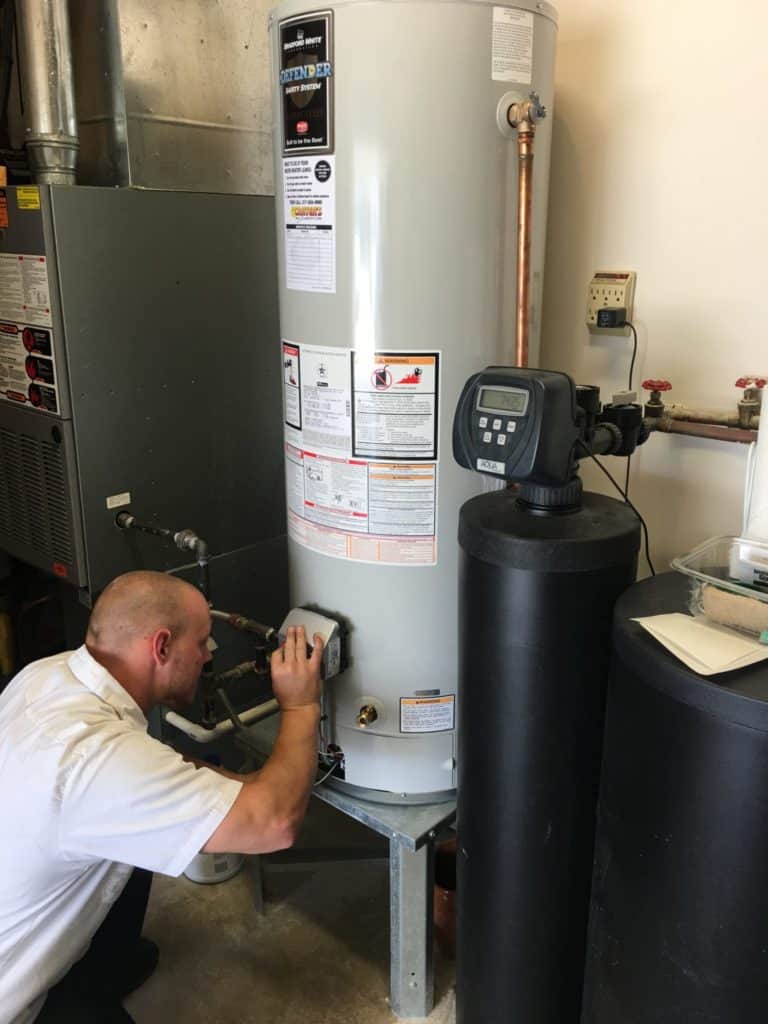This post following next about Common Hot Water Heater Problems is incredibly entertaining. Don't bypass it.

A hot water heater is among one of the most important fundamental home appliances that can be discovered in a residence. With water heaters, you do not require to experience the stress and anxiety of home heating water manually every time there is a requirement to wash, do the laundry, or the meals. There is always a possibility that your water heater would certainly act up as with many mechanical devices.
It is important to keep in mind any kind of little breakdown and also tackle it rapidly before things leave hand. A lot of times, your water heater begins to malfunction when there is a build-up of debris as a result of continual usage. As a precaution, regular flushing of your hot water heater is recommended to avoid debris buildup and protect against functional failure.
Common hot water heater emergencies and also how to take care of them
Too little warm water
It might be that the water heater can't sustain the hot water demand for your home. You can update your water heater to one with a larger capacity.
Rising and fall water temperature level.
Your water heating unit could begin creating water of different temperature levels usually ice hot or cold hot. There could be a need to change either the thermostat or the heating unit of your water heating unit.
Leaking hot water heater tank.
In this scenario, you should turn off your water heating unit, enable it to cool down, and also carefully look for the resource of the issue. At times, all you need to do is to tighten a couple of screws or pipe links in cases of small leakages. If this doesn't function and the leak continues, you could need to use the services of a specialist for a proper substitute.
Blemished or odiferous water
You require to know if the issue is from the container or the water source when this happens. If there is no funny smell when you run cold water, then you are certain that it is your hot water heater that is malfunctioning. The stinky water can be brought on by corrosion or the buildup of microorganisms or sediments in the water heater storage tank. You can try flushing out your container or changing the anode if the problem continues as soon as you see this. The feature of the anode is to clean out germs from your tank. Because the anode rod replacement requires a thorough understanding of your water heating system, you will need the help of a professional.
Conclusion
Some house owners neglect little caution as well as minor faults in their hot water heater unit. This only brings about further damages and also a possible full malfunction of your appliance. You should take care of your hot water heater mistakes as quickly as they come up to stay clear of more expenses and also unnecessary emergency problems.
With water heating systems, you don't require to go with the stress and anxiety of heating water by hand every time there is a need to take a bath, do the washing, or the dishes. It may be that the water heating system can't sustain the warm water demand for your home. Your water heater might start creating water of different temperature levels generally ice chilly or scalding warm. If there is no amusing odor when you run cool water, after that you are particular that it is your water heater that is malfunctioning. The smelly water can be caused by corrosion or the build-up of germs or sediments in the water heating system storage tank.
Common Water Heater Issues and What You Should Do
What Type of Water Heater Do You Have?
Before we begin it’s first important that you identify the type of water heater you have on your property. There are two main types of water heaters out there: conventional and high efficiency.
Both of these types of products typically use either gas or electricity to heat power. There are also solar water heaters that use a thermal collector on the roof or yard to heat the water.
While these models are not as common, they can cut heating costs in half. In this article, we will focus on conventional and high efficiency.
How Do My Electric and Gas Water Heater Work?
Though they look similar, electric and gas water heaters work very differently. It’s important to know their basic function because often problems can be specific to the heating source.
In the electric model, a thermostat on the side of the machine detects the temperature of the water in the tank. When the temperature needs to rise electricity flows to a heating element suspended in the water.
Gas models also use a thermostat device — typically with a mercury sensor at the tip and an additional sensor called a thermocouple. The thermocouple detects whether the pilot light is on and controls the flow of gas.
When the thermostat drops below the appropriate level gas is released which becomes ignited by the pilot light. The flame heats the bottom of the water tank which causes hot water to rise and cold water to drop.
This natural circulation continues until the water reaches the desired temperature. Then, the thermostat triggers the gas control valve to shut off the flow of gas.
What Are the Most Common Issues and How Do You Fix Them?
https://happyhiller.com/blog/common-water-heater-issues-and-what-you-should-do/

Do you like reading about The Importance of Water Heater Maintenance? Try to leave a remark directly below. We will be pleased to hear your insights about this article. In hopes that you come back again before long. Enjoyed reading our review? Please share it. Help someone else locate it. I am grateful for your time. Visit us again soon.
Efficient help? Call!